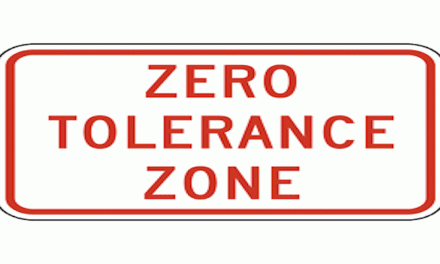My husband and I got our second dose of the COVID vaccine last week, and it’s given us peace of mind and confidence we’ll be able to return fully to our pre-pandemic lives.
We’re joined by more than 45% of Michiganians in getting at least one dose of the vaccine
I think many people have assumed once enough of us are vaccinated, it wouldn’t be long before the state backed down from its heavy-handed orders, and we could ditch masks and other measures we’ve been instructed to follow.
While residents may be eager to move on from COVID and its accompanying state-mandated restrictions, Michigan regulators are just settling in. They have crafted permanent rules that could live on long past the threat of the virus, if approved.
That’s right — permanent.
Unelected bureaucrats with the Michigan Occupational Safety and Health Administration are concerned that temporary emergency workplace rules, which just got extended another six months through October, will be needed beyond that date so they are busily working to keep the regulations in perpetuity.
MIOSHA officials claim the permanent rules are needed since, “Michigan’s experience with COVID-19 demonstrates that the disease can spread rapidly without protective measures and standards in place.”
Emergency rules can only be in effect for one year, meaning that MIOSHA has to now go through the proper rule-making process to extend its dictates.
These mandates are wide-reaching, and would impact pretty much everyone, whether going to a restaurant or a ball game. Businesses would have to allow remote work when possible; conduct health screenings of employees; quarantine employees who’ve been exposed to COVID; require masks of customers and staff; and ensure detailed cleaning and social distancing policies.
The rules would live on, even once current “epidemic orders” from the state Health Department go away.
This makes Michigan one of only a few states that are contemplating more permanent extensions of emergency COVID regulations. Oregon is also considering similar guidelines, and MIOSHA officials claim Virginia has moved forward with such rules.
“No other state has its thumb on decisions that should be made in the workplace,” says Wendy Block, vice president of business advocacy and member engagement at the Michigan Chamber of Commerce. The chamber has also pushed back against the extension of the temporary rules.
Michigan is again finding itself an outlier in stringent COVID policies that have not proven successful in preventing the last two major waves of the virus.
Michael Van Beek, director of research for the Mackinac Center for Public Policy, questions why such long-term rules are needed for what should be a temporary emergency.
The rules don’t have a built-in expiration date, so even once other health orders are rescinded, these regulators would only need to “examine” whether to continue the rules.
And many of the mandates are not well-defined, which means employers would have to muddle through and do their best to comply — or face fines.
“It’s difficult for employers to know if they are in compliance or not,” says Van Beek. “They could be at risk of violating these rules at any time.”
Most concerning for businesses — especially retail businesses and restaurants — is that these rules would turn them into the mask police. Once the statewide individual mask mandate is lifted, the impetus would be on employers to ensure their customers are complying.
“This creates even more confusion and uncertainty,” says Van Beek.
MIOSHA does have to hold public hearings as part of the rule-making process, and concerned business owners and residents should make their voices heard. The first hearing is set for May 26.
The Republican-controlled Legislature could delay the implementation of the rules, but other than that, it doesn’t have much control over the process. Lawmakers could pass a bill overturning new rules, but then Gov. Gretchen Whitmer would have to sign it. And the governor and lawmakers haven’t found much room for agreement when it comes to COVID.
We’re all looking forward to leaving the pandemic behind. As many states like Texas and Florida are returning to normal, this effort to make masks and other COVID rules permanent is the wrong direction for Michigan.
___
(c)2021 The Detroit News
Visit The Detroit News at www.detnews.com
Distributed by Tribune Content Agency, LLC.
—-
This content is published through a licensing agreement with Acquire Media using its NewsEdge technology.



















What does one expect from the dictator in my state, Governor Gretchen? Gretchen told everyone not to travel out of state and she went to Florida for a few days in April, 2021. When asked, when she was last out of state, Whitmer stated that she went to Israel in November of 2019. Do as I say, not as I do, right Gretchen?????
WHERE the hell is the RECALL petiton??
Lawmakers could pass a bill overturning new rules, but then Gov. Gretchen Whitmer would have to sign it. And the governor and lawmakers haven’t found much room for agreement when it comes to COVID.
If you live and vote in Michigan, there’s a way to fix that.
Wendy Block, vice president of business advocacy and member engagement at the Michigan Chamber of Commerce.
I believe, from the Time article on how the Democrats “protected” the election from Trump voters, that the U.S. Chamber of Commerce was a member of the “cabal.” (Their word, not mine.)
How’s that working out for you?
This clearly illustrates the long-standing caveat that once government attains any level of power, it is very difficult to take that power away. It can be done, but it will require a mass effort by the entire population. Tie this in to the January 6th event at the Capitol where Democrats labeled it an insurrection—I think the Left is aggressively pushing things to the limit in anticipation that there may well be a revolt in this country against the oppressive tactics being implemented by the radical extremists who have positioned themselves at local, state, and national levels. And it may well be that it is time for the Conservative majority in this country to bring down the hammer, refuse to be subjected to any more of this abuse, and oust the power-hungry politicians who are unwilling to relent
Trump was continually under assault as being a dictator and a tyrant. Now, one can see who the real dictators and tyrants really are. If it is time to get nasty with these people, then so be it.
IF trump was even 1/10th the ‘tyrant’ they claimed he was, THE LEFT WOULD NOT HAVE HAD even 1 week of riots all last year, as every damn one involved, would have been PUT DOWN like the rabid dogs they act like.